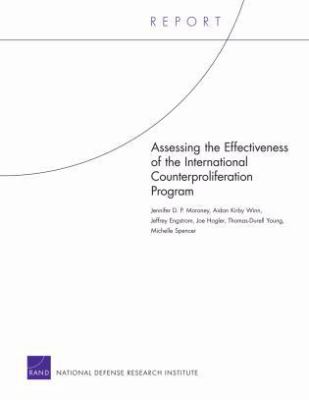
e-Book
|
Assessing the effectiveness of the international counterproliferation program
Copies
0 Total copies, 0 Copies are in,
0 Copies are out.
Title
Assessing the effectiveness of the international counterproliferation program
Call No
JZ5675
Digital Link
Authors
Language
English
Published
Santa Monica, CA : RAND, 2011.
Publication Desc
1 online resource (xx, 58 p.) : ill. (digital, PDF file).
ISBN
9780833052599 (pbk. : alk. paper)
Series








